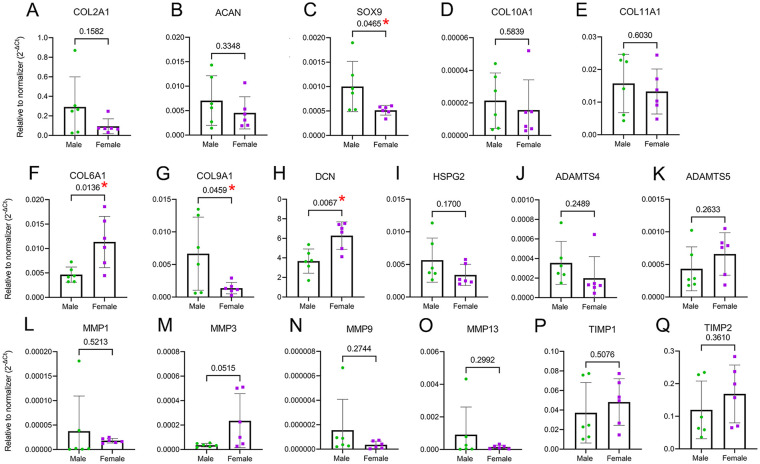Figure 5.
Chondrocytes show sexual dimorphism in gene expression of PCM proteins. (A-B) No difference between male and female was detected in the expression of COL2A1 and ACAN. (C) SOX9 was higher in male chondrocytes. (D-E) COL10A1 and COL11A1 were not dimorphic. (F-H) The PCM genes COL6A1, COL9A1, and DCN were expressed in a sex-dependent manner, although HSPG2 (I) was not dimorphic. (J-K) No difference was observed in ADAMTS4 and ADAMTS5 expression. (L-O) MMP1, MMP9, and MMP13 were similar between sexes, but MMP3 showed a trend for higher expression in females. (P-Q) None of the TIMPs tested were differentially expressed depending on the sex of the cell. Data are presented as mean ± SD of relative quantity to normalizer (geometric mean of 18S and GAPDH). Cells from 6♂ + 6♀ were used in passage 0. PCM = pericellular matrix; MMP = metalloprotease; ADAMTS = a disintegrin and metalloproteinase with thrombospondin motifs; DCN = decorin; TIMP = tissue inhibitor of metalloproteases; ACAN = agreccan; COL = collagen; SOX9 = SRY (sex determining region Y)-Box 9; HSPG2 = heparan sulfate proteoglycan 2 (perlecan); GAPDH = glyceraldehyde-3-phosphate dehydrogenase.

